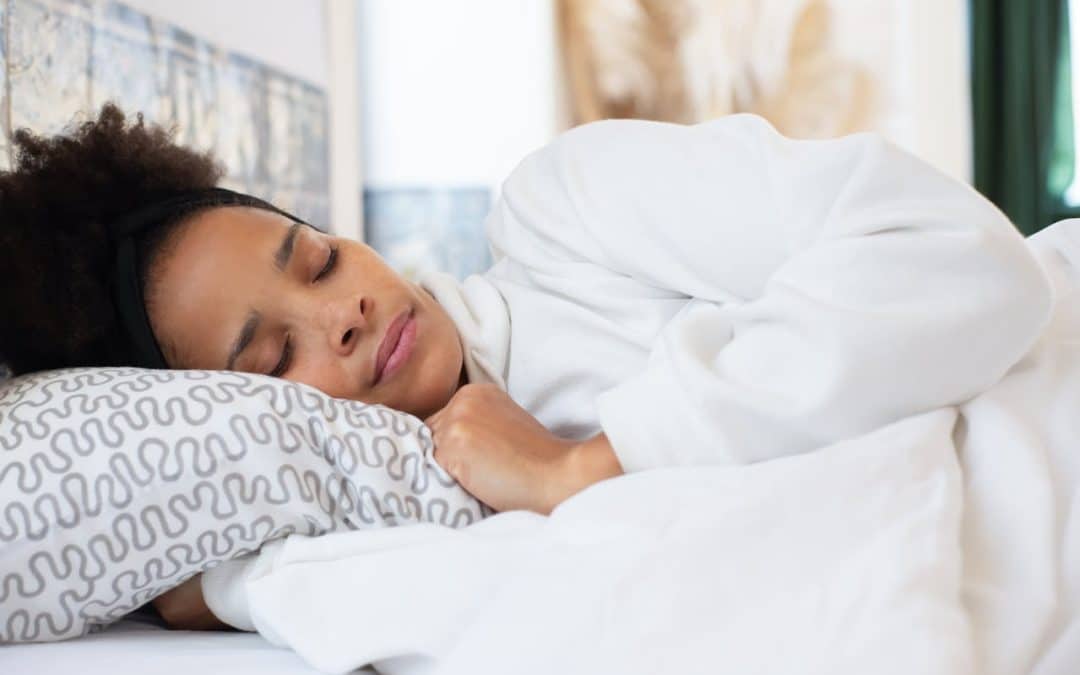Sleep and Mental Health | Women’s Health
In recent years, the outdated mindset of “sleep is for the weak” and “I’ll sleep when I’m dead” has given way to a much-needed shift—one that recognizes sleep as a pillar of overall health. Quality rest isn’t a luxury but a necessity for mental and physical well-being. In fact, despite the high demands on women’s labor at work and at home, current research suggests that women need more sleep than men to support their health.
While sleep is essential for everyone, women face distinct challenges that can impact both the quality and quantity of their rest. Factors like hormonal fluctuations, stress, and societal roles can make it harder for women to get the sleep they need—yet these differences are often overlooked in mainstream sleep advice. It’s our hope that understanding these unique influences can help women prioritize rest in a way that truly supports their mental health. With World Sleep Day approaching on March 15th, it’s the perfect time to highlight the unique factors that affect women’s sleep—and their mental health.
Women are more likely to experience insomnia
Insomnia is a persistent difficulty falling or staying asleep, often leaving those affected feeling exhausted, frustrated, and unable to fully recharge. A study by the Perelman School of Medicine at the University of Pennsylvania found that about 25% of Americans experience acute insomnia each year, with women being at higher risk. While biological factors—such as hormonal fluctuations during menstruation, pregnancy, and menopause—play a key role, social and environmental stressors also contribute to this disparity.
Women are more likely to experience a heavy “mental load,” which includes managing household responsibilities, caregiving duties, workplace inequalities, and the often invisible burden of emotional labor in relationships. This chronic cognitive and emotional strain can lead to increased stress and rumination, both of which are large contributors to sleep disturbances.

If you’ve struggled with insomnia, especially under the weight of these responsibilities, it’s not just in your head. The toll of constant mental and emotional labor is real, and its impact on sleep is incredibly powerful.

Hormones Are Impacting Your Sleep
If you’re struggling to sleep through the night, you’re not alone. Most women experience a menstrual cycle for around 35-45 years of our lives–until we reach menopause. And throughout this time, natural variations in our estrogen and progesterone levels can significantly impact sleep quality.
Many women report increased sleep disturbances, especially during the premenstrual phase, as hormone levels fluctuate. When estrogen levels drop and progesterone levels rise, our melatonin production can become disrupted, body temperature may increase, and we may get less REM and deep sleep. As a result, we may experience lighter sleep and more frequent awakenings.
Since good sleep is essential for mental health and quality of life, ongoing sleep disruptions can leave us feeling out of control in our daily lives. Lack of restful sleep has been linked to higher levels of anxiety, depression, and difficulty regulating emotions, making it harder to cope with stress, stay focused, and handle responsibilities.
Over time, chronic sleep deprivation can increase feelings of exhaustion and overwhelm, impair decision-making, and even lead to burnout—especially for women juggling work, caregiving, and the mental gymnastics of daily life.
Sleep Disruptions Are Common Throughout Menopause & Perimenopause
During our younger years, many of us go about our lives without realizing just how essential estrogen is to nearly every system in the body. But as we age, our bodies naturally produce less and less of this hormone, setting the stage for changes that can impact everything from mood to sleep. And it’s often during this time that we start to feel the effects of its decline.
Most women likely know that menopause is inevitable, typically occurring between ages 45 and 55. But what many of us may not realize is that perimenopause–the period of transition leading up to menopause–can start much earlier, sometimes as early as our mid-30s. And the hormonal fluctuations during perimenopause can disrupt sleep, making it harder to fall and stay asleep.

Once we reach menopause, the decline in estrogen becomes even more pronounced, bringing on symptoms like hot flashes, restless legs syndrome, intense mood swings, increased cortisol levels, and heart palpitations. As we’ve discussed, these symptoms can make getting consistent, restful, and uninterrupted sleep difficult.
When sleep suffers, so does our emotional resilience—affecting everything from relationships to overall well-being. Lack of sleep can heighten anxiety, intensify mood swings, and contribute to brain fog and irritability, making daily life feel harder to manage. It can be frustrating—and downright exhausting—when you need rest the most, yet perimenopause and menopause throw constant obstacles in your way.
What You Can Do To Improve Your Sleep
1) Balance Your Mental Load
Working to set better boundaries around household, work, caregiving, and emotional responsibilities can help. But for most of us, this will be a team effort. Partners and family also need to make adjustments to rebalance an unequal mental load. Communicating your priorities around sleep with supportive loved ones can start that conversation.
2) Support Hormonal Health
Nutrient-dense foods, regular movement, and stress management techniques like mindfulness can help regulate cortisol and melatonin, both of which influence sleep. Limiting caffeine and alcohol—especially in the evening—can also prevent sleep disruptions. Finally, consider discussing with your doctor whether hormone replacement therapy (HRT) could be a suitable option for improving your sleep and overall well-being.
3) Solidify Your Sleep Routine
Keep a consistent bedtime, get direct morning sunlight into your eyes for about 10 minutes (or use a bright light lamp) to regulate your circadian rhythm, and practice relaxation techniques like deep breathing or journaling to quiet your racing mind before bedtime.
4) Seek Professional Support
If sleep issues persist, consult your doctor, hormone specialist, or gynecologist. A therapist can also help you with sleep-related anxiety, stress management, and unhelpful thought patterns that may be keeping you awake. There are also medications that may be helpful in managing insomnia.
About Esther Kwon
Esther Kwon is Stella Nova’s Intake & Administrative Assistant, and helps support new clients as they’re getting started at Stella Nova. She strives to make every new client feel comfortable, safe and supported as they work together to find a match. Her favorite self-care is doing yoga, journaling, rock climbing, crocheting amigurumi, and longboard skating.
If you’re ready to begin your therapy journey before the New Year approaches, we’re here to help. Get in touch for a free 20-minute consultation to get started today!
Subscribe To Our Newsletter
Want more valuable mental health content? Keep in touch with Stella Nova by subscribing to our mental health newsletter. We share valuable tips and information twice a month, as well as periodic practice updates, upcoming events, and discounts.
When you sign up, you’ll also receive a copy of our free Preparing for Therapy mini-workbook to help you get ready to get the most out of your experience.


